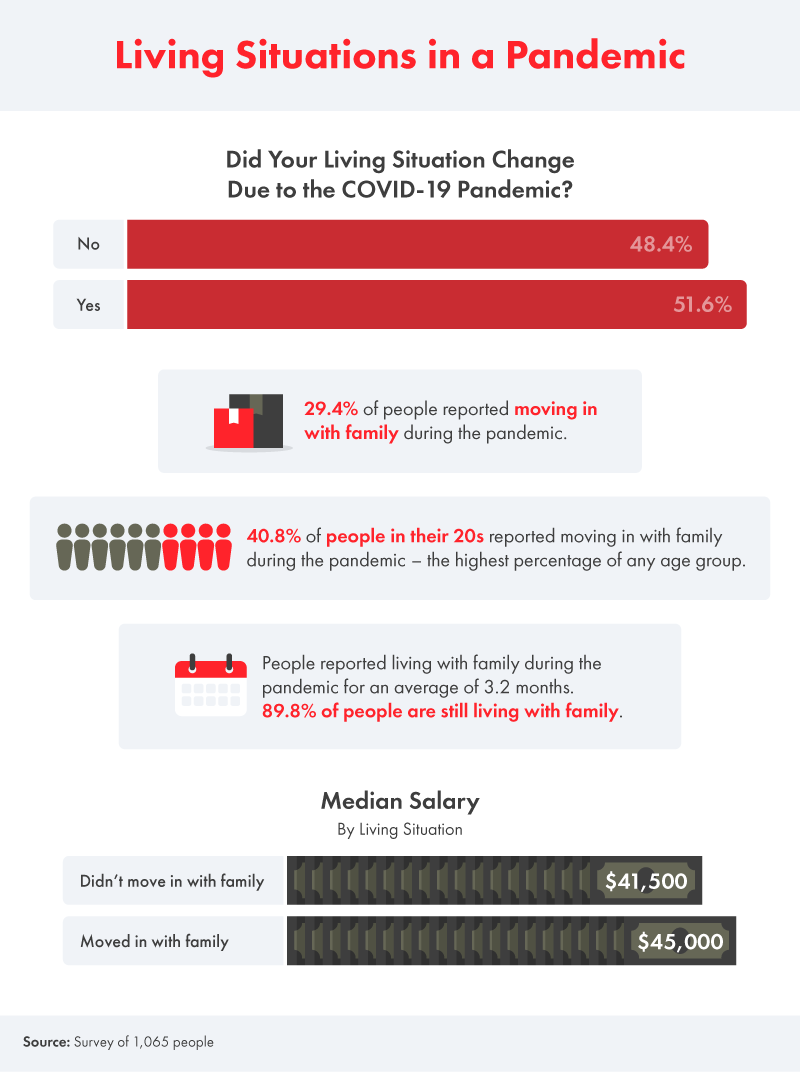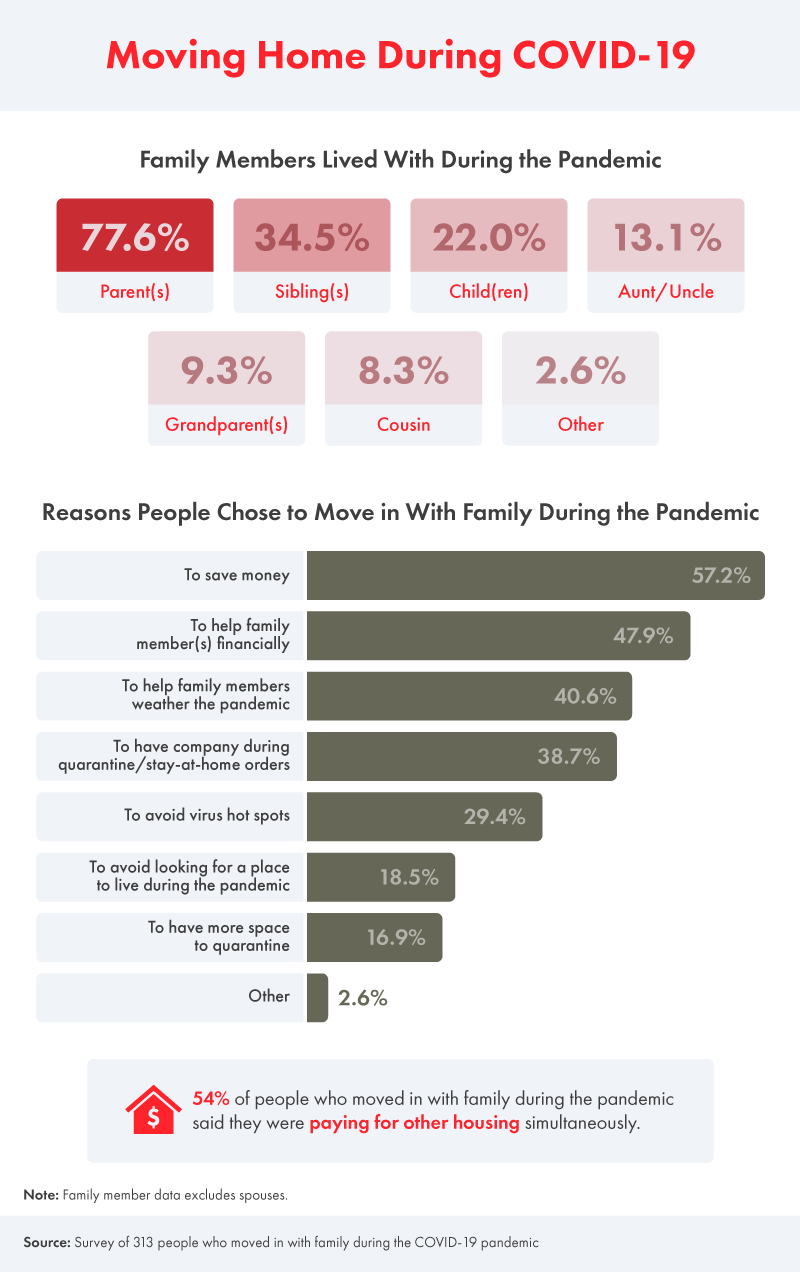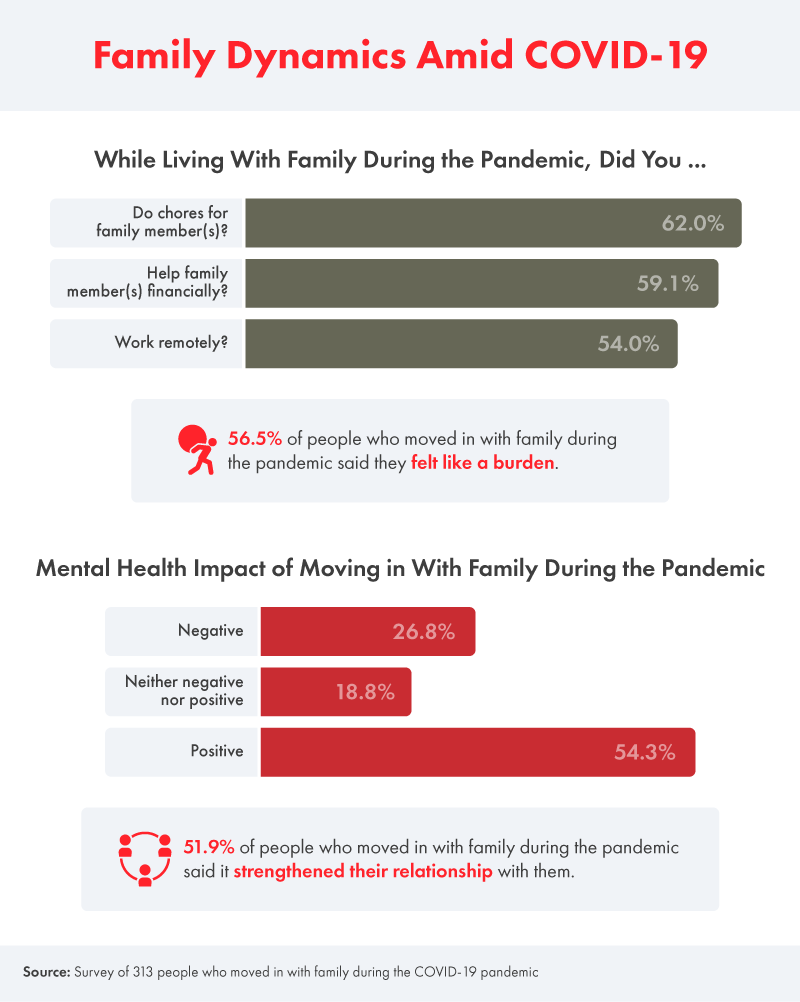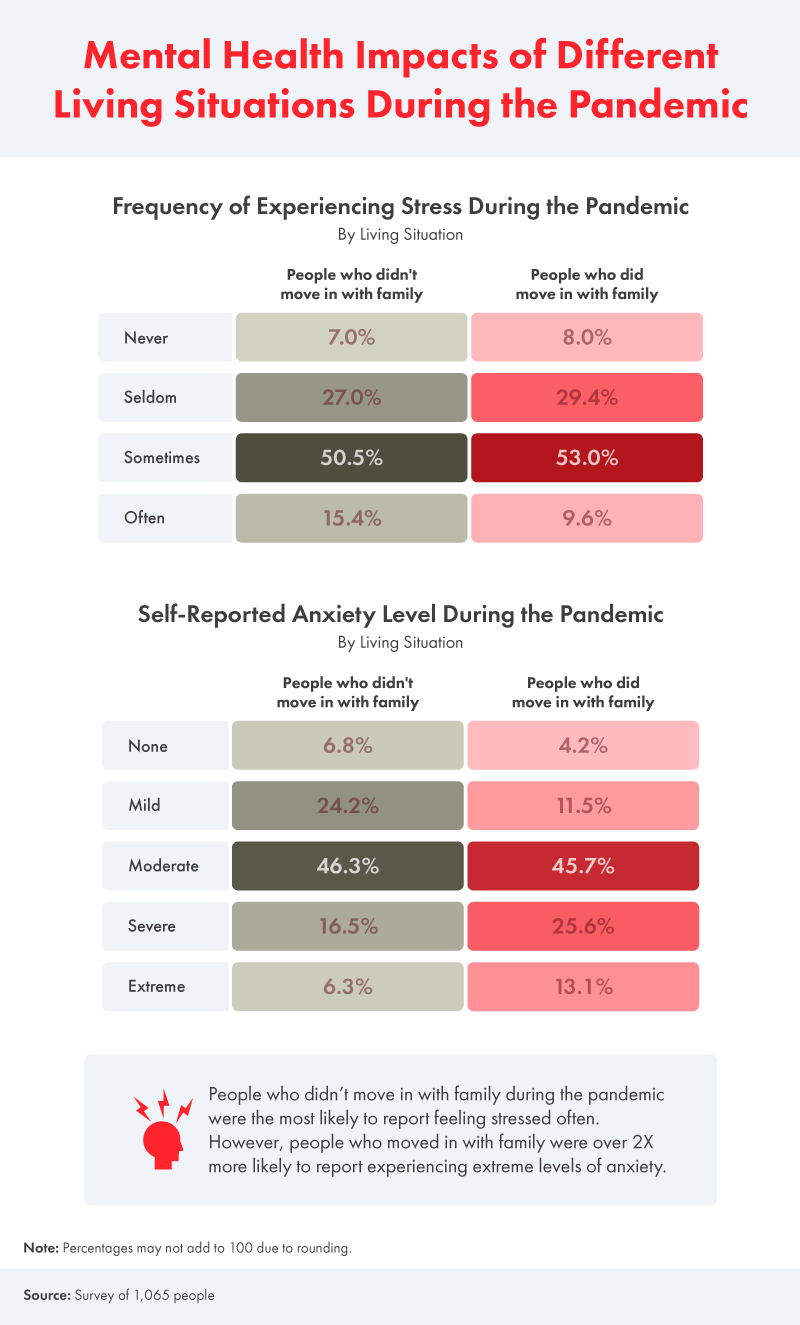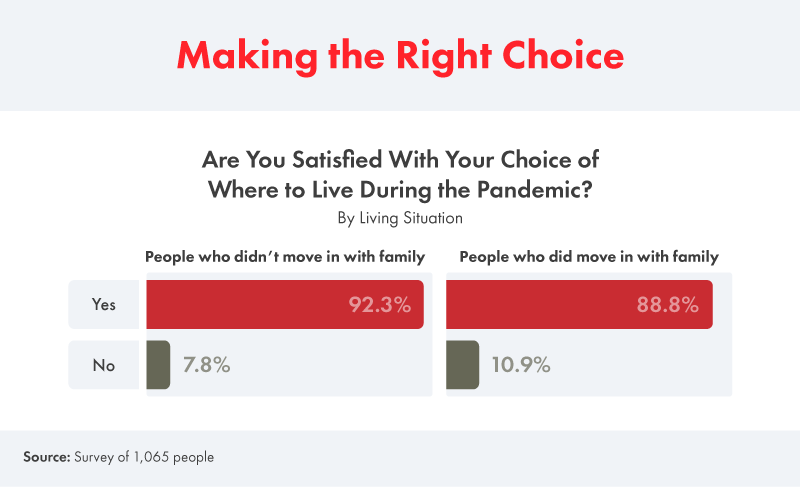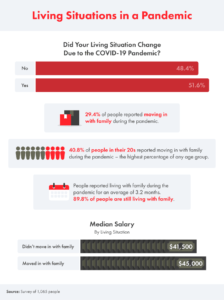
The coronavirus pandemic has hit us all in ways we weren’t expecting. Some had to change plans and reevaluate their finances to still have a place to live. While this mostly affected younger workers, people of all ages had to make adjustments to their living situations to help save money.
Q2 2020 hedge fund letters, conferences and more
In a new study, Stannah Stairlifts surveyed more than 1,000 people, including many who reported hunkering down with family over the past few months, about their living situation. Here are some of the highlights.
Living Situations in a Pandemic
More than half (51.6%) of respondents admitted that their living situation changed due to the COVID-19 pandemic. Approximately 29.4% said they had to move in with family. About 40.8% of people in their 20s reported living with family because of the pandemic – the most of any age group.
The average amount of time spent in this situation was about 3.2 months. Nearly 90% are still living with their family because of the pandemic.
Those with a higher average income tended to be more likely to move to live with family. Workers with a median salary of $45,000 reported staying with relatives, while those making $41,500 chose to remain in their current accommodations.
Moving Home During COVID-19
Which family members did people choose to live with to ride out the pandemic? More than 3 in 4 people decided to stay with their parents. More than 1 in 3 respondents crashed with their siblings, and approximately 2 in 10 lived with their children.
The top reasons why people decided to make this move was to save money (57.2%), to help their family members financially (47.9%), and to help their family members weather the pandemic (40.6%).
Other people just wanted some company during quarantine (38.7%) or desired to avoid hot spots (29.4%). But more than half (54%) of respondents said that while they were living with family during the coronavirus pandemic, they were paying for other housing simultaneously.
Family Dynamics Amid COVID-19
Did the family people stay with expect them to do chores and help out while living under their roof? More than 3 in 5 people did chores, and 59.1% helped their relative financially. More than half (54%) of people worked remotely while in this living situation.
And more than half (56.5%) of respondents who moved in with family felt like a burden.
But how did moving in with relatives affect the person’s mental health overall? The overwhelming majority, 54.3% of respondents, said their mental health was positively impacted while living with their family. Just 26.8% reported having negative feelings during this time.
More than half (51.9%) of respondents who moved in with family during this time said it strengthened their familial relationships.
Whether people moved in with family during the coronavirus pandemic, respondents were generally happy with their decision. Only 10.9% of people who decided to live with a relative and 7.8% of those who chose the opposite wound up unhappy with their housing decision. Sometimes you just need your family to help you through a challenging situation, and a global pandemic is precisely that.
The post Living situation change as people look to save money appeared first on ValueWalk.

